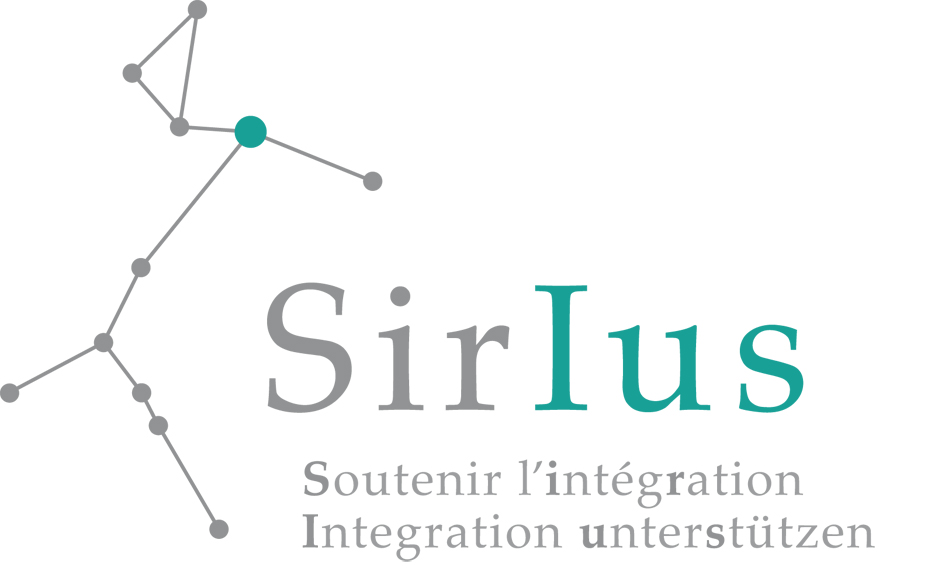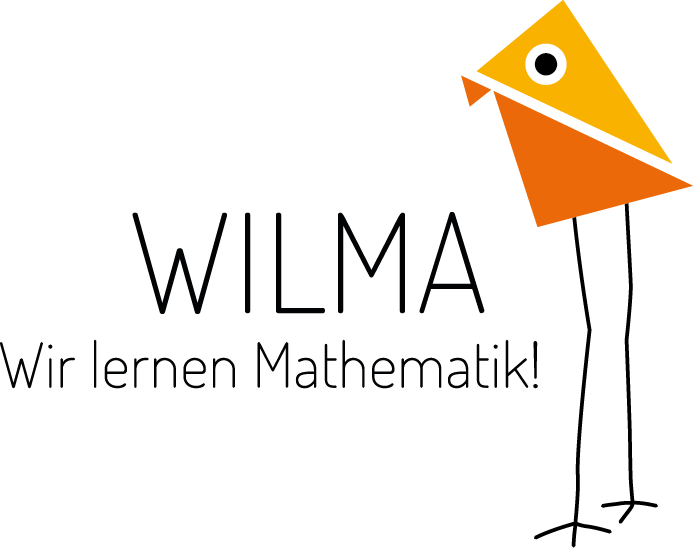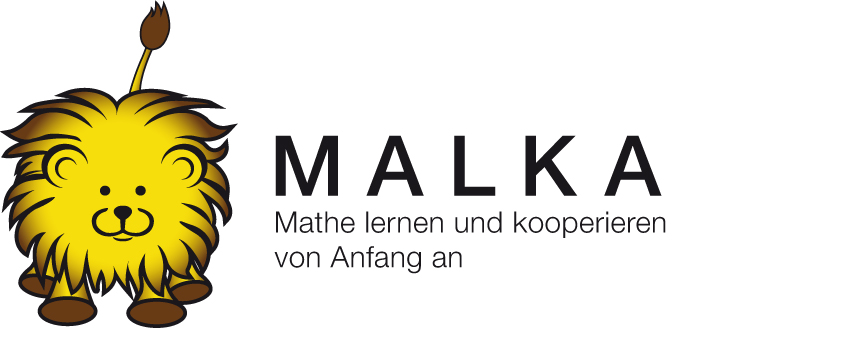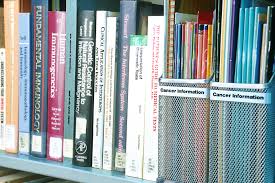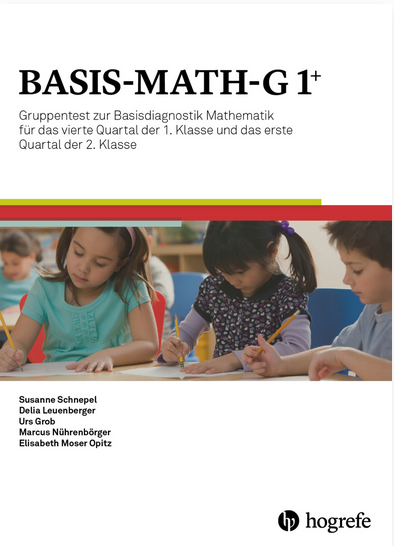The project investigated the continuity of and changes to in inhouse (special edcuation) in the 20th century, based on the example of the Landererziehungsheim Albisbrunn (LA) (country boarding school) in the canton of Zurich. Focus of this analysis was placed on changes to practices in a children’s home, its organization, concepts, and context.
Special Education with focus on Inclusion and Instruction Research
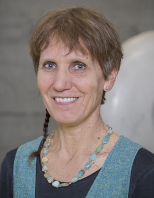
Elisabeth Moser Opitz, Prof. Dr.
Chair of special education with focus on inclusion and instruction
Tel.: +41 44 634 31 36
Freiestrasse 36, CH - 8032 Zürich
Table of contents
- Recent Publications
- Recent publications of PhDs and Postdocs
- Research Projects:
- Ongoing projects
- SMILE: Development and evaluation of an intervention for adolescents and adults with dyscalculia
- Zurich Learning Progress Study (LEAPS)
- SINUS: The effect of segregated and inclusive education, teaching quality, and teacher characteristics on students in secondary school
- Completed projects
- KOLIBRI
- SirIus
- WILMA
- MALKA
- The "grammar" of stationary education in context
- PRiMa
- BASIS MATH
- SimBa
- ZeBrA
Recent Publications
Moser Opitz, E. & Schnepel, S. (2025). Rechenschwäche - Rechenstörung-Dyskalkulie.
In R. Markowetz, T. Hennemann, D. Hövel & G. Casale (Hrsg.), Handbuch Förderschwerpunkt emotional-soziale Entwicklung (S. 351-355). Beltz.
Holzer, E. M., & Moser Opitz, E. (2025). The benefits of inclusive education: a systematic review of student achievement in secondary schools. European Journal of Special Needs Education, 1–19. https://doi.org/10.1080/08856257.2025.2587615
Schnepel, S., Luger, S., Wehren-Müller, M. & Moser Opitz, E. (2025). The role of teacher attitudes and collaboration for inclusive teaching practices. Teaching and Teacher Education, 168, 105240. https://doi.org/10.1016/j.tate.2025.105240
Schnepel, S. & Foster, M. (1.1.2025): Fachbeitrag: Überzeugungen von Lehrkräften im Umgang mit Leistungsheterogenität im inklusiven Unterricht: Eine empirische Studie mit Lehrkräfteteams. Vierteljahresschrift für Heilpädagogik und ihre Nachbargebiete, 94 (VHN Plus). https://doi.org/10.2378/vhn2025.art24 or ZORA: https://www.zora.uzh.ch/id/eprint/279505/
Schnepel, S. Leuenberger, D. Grob, U., Nührenbörger, M., Moser Opitz, E. (2025). Basis-Math-G 1+. Gruppentest zur Basisdiagnostik Mathematik für das vierte Quartal der 1. Klasse und für die 2. Klasse. Hogrefe.
Garrote, A., Nesme, C. & Moser Opitz, E. (2025). Peer rejection and negative teacher feedback: a person-centred approach for identifying students at risk in Swiss elementary classrooms. Education 3-13, 1–13. https://doi.org/10.1080/03004279.2025.2473402
Gloor, N., Kucian, K., Bruns, J., Gasteiger, H. & Moser Opitz, E. (2025). Erfassung der numerischen Kompetenzen im Kindergartenalter: Validierung eines Screenings in der Schweiz und in Deutschland. Frühe Bildung, online Feb. 2025. https://doi.org/10.1026/2191-9186/a000699
Moser Opitz, E. (2024, 11. November). Sozio-emotionale Erfahrungen von Schülerinnen und Schülern. Einführender Beitrag in den Schwerpunkt. Unterrichtswissenschaft. https://doi.org/10.1007/s42010-024-00218-0
Moser Opitz, E. (2024). Special Educational Needs and Disabilities in Primary Education (Switzerland). In S. Huber, S. Denzler & E. Makarova (Eds.), Bloomsbury Education and Childhood Studies BECS. Bloomsbury. http://dx.doi.org/10.5040/9781350881181.023
Criblez, l., Bühler, P. & Moser Opitz, E. (2024). Kontinuität und Wandel der stationären Erziehung im 20. Jahrhundert. Zur Einführung. In Deplazes, D., Garz, J.T., Haymoz, N. & Criblez, L. (Hrsg.), Erziehen, erfassen, erforschen. Kontinuität und Wandel der stationären Erziehung im 20. Jahrhundert am Beispiel des Landerziehungsheims Alibsbrunn (S. 9.-24). Chronos. Verfügbar unter: https://www.chronos-verlag.ch/node/28720
Moser Opitz, E. & Wehren-Müller, M. (2024). Diagnostische Kompetenz erfassen: Wie interpretieren Regel- und Förderlehrkräfte eine Fallvignette zu mathematischen Lernschwierigkeiten?. In B. Barzel, A. Büchter, C. Rütten, F. Schacht & S. Weskamp-Kleine (Hrsg.), Inklusives Lehren und Lernen von Mathematik (S. 273-285). Springer Spektrum. https://doi.org/10.1007/978-3-658-43964-4_17
Garrote, A., Diener, M., Hepberger, B., Kuratli Geeler, S., Nesme, C., & Moser Opitz, E. (2024). Social behavior, academic achievement, language skills, and peer rejection in elementary school classes: the moderating role of teacher feedback. Educational Psychology, 1–19. https://doi.org/10.1080/01443410.2024.2387544
Gräsel, C., Hardy, I., Hertel, S., Kleickmann, T., Moser Opitz, E., Neumann, K., Praetorius, A., Renkl, A. & Wirth, J. (2024). 50 Jahre „Unterrichtswissenschaft – Journal of Teaching and Learning Sciences“ – Jubiläumsheft II. Unterrichtswissenschaft, 52, 163-165. https://doi.org/10.1007/s42010-024-00214-4
Leuenberger, D., Diener, M., Wehren-Müller, M., Hofmann-Villiger, A., Vogt, F. & Moser Opitz, E. (2024). Fostering computation competence with non-counting strategies and conceptual subitizing in grade 1: An intervention study in inclusive classrooms. Journal für Mathematik-Didaktik, 45, 12. https://doi.org/10.1007/s13138-024-00236-6
Leuenberger, D., Moser Opitz, E., & Gloor, N. (2024). Assessment of computation competence and non-count strategy use in addition and subtraction in grade 1. Journal of Numerical Cognition, 10, 1-16. https://doi.org/10.5964/jnc.12633
Dunekacke, S., Wullschleger, A., Grob, U., Heinze, A., Linderer, A., Vogt, F., Kuratli Geeler, S., Leuchter, M., Meier-Weder, A., Seemann, S. & Moser Opitz, E. (2024). Teaching quality in kindergarten: professional development and quality of adaptive learning support enhances mathematical competency. ZDM Mathematics Education. https://doi.org/10.1007/s11858-024-01566-y
Deplazes, D., Garz, J.T., Haymoz, N., Criblez, L., Bühler, P. & Moser Opitz, E. (2024). Grammatik der stationären Erziehung. Das Schweizer Heimwesen im Spiegel des Landerziehungsheims Albisbrunn 1924-1990. In V. Barras, A. Jungo & F. Sager (Hrsg.), Diffuse Verantwortlichkeiten. Strukturen, Akteur:innen und Bewährungsproben (S. 21-36). Schwabe Verlag.
Luger, S., Schnepel, S., Wehren-Müller, M., & Moser Opitz, E. (2024). Unterstützende Lehrperson-Schulkind-Beziehungen dank Kooperation der Lehrpersonen? Bedeutung der Zusammenarbeit von Klassenlehrperson und Schulischen Heilpädagog:innen für den Aufbau unterstützender Beziehungen zu den Kindern. Schweizerische Zeitschrift für Heilpädagogik, 30(02), 23-28. https://doi.org/10.57161/z2024-02-04
Foster, M., Diener, M., Schnepel, S. & Moser Opitz, E. (2024). Individuelle Lernunterstützung in der Arbeitsphase einer standardisierten Mathematikstunde im ersten Schuljahr – eine Videostudie. Unterrichtswissenschaft, 52(3), 353-380 . https://doi.org/10.1007/s42010-023-00180-3
Schnepel, S., Sermier Dessemontet, R. & Moser Opitz, E. (2024) The impact of inclusive education on the mathematical progress of pupils with intellectual disabilities, International Journal of Inclusive Education, 28(12), 2815-2829.https://doi.org/10.1080/13603116.2022.2132425
Lietz, M., Moser Opitz, E. & Stöckli, M. (2023). Professionswissen von Studierenden und von Regel- und Förderlehrkräften zu Grundlagen des Leseerwerbs und zur Diagnostik von Leseschwierigkeiten: Entwicklung eines Instruments und Herausforderungen. Empirische Sonderpädagogik, 15, 103-122. https://doi.org/10.2440/003-0001
Wullschleger, A., Lindmeier, A., Heinze, A., Meier-Wyder, A., Leuchter, M., Vogt, F. & Moser Opitz, E. (2023). Improving the quality of adaptive learning support provided by kindergarten teachers in play-based mathematical learning situations. European Early Childhood Education Research Journal, 31(2), 225-242. https://doi.org/10.1080/1350293X.2022.2081348
Moser Opitz, E. & Nührenbörger, M. (2023). Diagnose und Förderung. In R. Bruder, A. Bücher, H. Gasteiger, B. Schmidt-Thieme, H.-G. Weigand (Hrsg.), Handbuch der Mathematikdidaktik (2. Auflage) (S. 597-618). Springer Verlag. https://doi.org/10.1007/978-3-662-66604-3_19
Garrote, A., Wullschleger, A. & Moser Opitz, E. (2023). Positives Feedback erhöht die soziale Akzeptanz unter Kindern. Bildung Schweiz, Dachverband Lehrerinnen und Lehrer Schweiz LCH, 5, 27. https://www.bildungschweiz.ch/detail/positives-feedback-erhoeht-die-soziale-akzeptanz-unter-kindern
Ackermann, N. & Luger, S. (2023). Welche Vorstellungen von Erziehungswissenschaft haben Studienanfänger:innen? Eine explorative Studie anhand wissenschaftlicher Arbeiten aus einer propädeutischen Lehrveranstaltung. die hochschullehre, 9, 55-69. https://www.zora.uzh.ch/id/eprint/233979/
Gräsel, C., Hardy, I., Hertel, S., Kleickmann, T., Moser Opitz, E., Neumann, K., Praetorius, A.-K., Henkel, A. & Wirth, J. (2023). 50 Jahre „Unterrichtswissenschaft – Zeitschrift für Lernforschung“ – Jubiläumsheft I. Unterrichtswissenschaft, 51(1), 1-13. https://doi.org/10.1007/s42010-023-00168-
Grosche, M. & Moser Opitz, E. (2022, 09. Mai). Kooperation von Lehrkräften zur Umsetzung von inklusivem Unterricht – notwendige Bedingung, zu einfach gedacht oder überbewerteter Faktor? Unterrichtswissenschaft, 52(2), 245-263. https://doi.org/10.1007/s42010-023-00172-3
Schnepel, S., Wehren-Müller, M., Luger, S., Stöckli, M. & Moser Opitz E. (2022). Der Einfluss der pandemiebedingten Schulschließung auf den Leistungszuwachs von Grundschülerinnen und -schülern in inklusiven Klassen der Schweiz – eine Längsschnittstudie. Empirische Sonderpädagogik, 4, 352-367. https://www.psychologie-aktuell.com/fileadmin/Redaktion/Journale/esp-2022-4/ESP_2022-4_3.pdf
Grob, U., Moser Opitz, E. & Stöckli, M. (2022). Learning from null results. An analysis of unexpected findings of a mathematical intervention study conducted in inclusive classrooms. Empirische Sonderpädagogik, 3, 211-227. https://www.psychologie-aktuell.com/fileadmin/Redaktion/Journale/esp-2022-3/ESP_2022-3_1.pdf
Moser Opitz, E. (2022). Diagnostisches und didaktisches Handeln verbinden: Entwicklung eines Prozessmodells auf der Grundlage von Erkenntnissen aus der pädagogischen Diagnostik und der Förderdiagnostik. Journal für Mathematik-Didaktik, 43(1), 205-230. https://doi.org/10.1007/s13138-022-00201-1
Meier-Wyder, A., Wullschleger, A., Lindmeier, A., Heinze, A., Leuchter, M., Vogt, F., & Moser Opitz, E. (2022) Konzeptualisierung und Messung der Qualität der adaptiven Lernunterstützung in Lernsituationen mit mathematischen Regelspielen im Kindergarten. Eine Studie in Deutschland und der Schweiz. Journal für Mathematik-Didaktik, 43(2), 405-434. https://doi.org/10.1007/s13138-021-00195-2
Garrote, A. & Moser Opitz, E. (2021). The social relationships of students with intellectual disabilities in inclusive classrooms. Empirische Sonderpädagogik, 3, 201-215. https://www.psychologie-aktuell.com/fileadmin/Redaktion/Journale/esp-2021-3/ESP_3-2021_2.pdf
Vogt, F., Leuchter, M., Dunekacke, S., Heinze, A., Lindmeier, A, Kuratli Geeler, S., Meier A., Seemann, S., Wullschleger & A., Moser Opitz, E. (2021). Kindergarten educators’ affective-motivational dispositions: examining enthusiasm for fostering mathematics in kindergarten. In S. Dunekacke, K. Eilerts, T. Koinzer, A. Jedogke & L. Jenssen (Eds.), Early Childhood Teachers‘ Professional Competence in Mathematics: International Perspectives (pp. 97-116). Routledge. https://doi.org/10.4324/9781003172529
Recent publications of PhDs and Postdocs
Gloor, N., Kucian, K., Bruns, J., Gasteiger, H. & Moser Opitz, E. (2025). Erfassung der numerischen Kompetenzen im Kindergartenalter: Validierung eines Screenings in der Schweiz und in Deutschland. Frühe Bildung, online Feb. 2025. https://doi.org/10.1026/2191-9186/a000699
Nesme, C. (2024). Handlungsorientierungen von Lehrpersonen in interventionsbasierten Klassengesprächen zur Förderung der sozialen Partizipation – Eine rekonstruktive Videoanalyse. (Dissertationsschrift). University of Zurich, University of Zurich, Faculty of Arts and Social Sciences. https://doi.org/10.5167/uzh-263204
Luger, S. (2023). Fachübergreifende Kompetenzen von Lehrkräften im Kontext inklusiven Unterrichts: Disziplinspezifische Wirkmechanismen und ihre Bedeutung für den Aufbau unterstützender Lehrkraft-Schulkind-Beziehungen. (Dissertationsschrift). University of Zurich, Faculty of Arts and Social Sciences. https://doi.org/10.5167/uzh-234597
Gloor, N. (2023). Erfassung von numerischen Kompetenzen im Kindergarten. Eine Analyse ausgewählter Tests. Lernen und Lernstörungen, 12(4), 175-187. https://doi.org/10.1024/2235-0977/a000409
Krähenmann, H. (2022). Gestaltung und Qualität inklusiven Mathematikunterrichts in der Primarschule – eine Videostudie zur Klassenführung, sozial-emotionalen und inhaltsbezogenen Unterstützung. Dissertation, University of Zurich: https://www.zora.uzh.ch/id/eprint/225049/
Schnepel, S., & Aunio, P. (2021). A systematic review of mathematics interventions for primary school students with intellectual disabilities. European Journal of Special Needs Education, 1–16. https://doi.org/10.1080/08856257.2021.1943268
Schnepel, S. (2019). Mathematische Förderung von Kindern mit einer intellektuellen Beeinträchtigung. Eine Längsschnittstudie in inklusiven Klassen. Empirische Studien zur Didaktik der Mathematik (Band 36). Münster: Waxmann.
Stöckli, M. (2019). Unterrichtsintegrierte Förderung im Mathematikunterricht: Eine empirische Studie in der Primarschule. Dissertation, University of Zurich: https://www.zora.uzh.ch/id/eprint/177335/
Research Projects:
Ongoing projects
SMILE: Development and evaluation of an intervention for adolescents and adults with dyscalculia
Developmental dyscalculia (DD) is a specific neurodevelopmental disorder that hinders children and adults in perceiving and processing numerical information efficiently and accurately. It has a negative effect on individual well-being and career success. Although we know that DD persists into adulthood, no evaluated support for young adults with DD exists.
In this project, we aim to fill this gap by developing and evaluating intervention units to improve numerical understanding in affected adolescents and adults. To evaluate the specific effects of the intervention, we will test the study participants behaviorally and by means of magnetic resonance imaging (MRI) before and after completion of the intervention as well as after a waiting control period. We expect significant differences in brain function, morphometry and connectivity between adolescents/adults with and without DD. Further, we expect to see an improvement in numerical understanding and an adaptation on the neuronal network responsible for number processing after the intervention in affected individuals.
Website of the project (in German)
Zurich Learning Progress Study (LEAPS)
SINUS: The effect of segregated and inclusive education, teaching quality, and teacher characteristics on students in secondary school
With the ratification of the UN Disability Rights Convention, inclusive education has become a major educational policy objective in many countries. Educational statistics from the past ten years show that inclusive education is becoming more common. There has also been a great deal of research into the impact of inclusive education, but the focus has almost exclusively been primary education. This is because inclusive education is generally less common in secondary schools but in Switzerland the situation is exacerbated by the achievement-oriented structure of secondary schooling. Any national study is further complicated by the multiple schooling models used by the authorities in Switzerland: There are three main models: The “Geteiltes” or Selective Model where students are assigned to different schools on the basis of their achievement level; the “Kooperatives” or Cooperative Model with students divided into core classes at different achievement levels within a school; and the “Integriertes” or Integrated Model where all students attend the same core classes and teaching is streamed for a few subjects. How each of these models is implemented can also vary from municipality to municipality or even between schools, making comparative studies difficult. It is also difficult to analyze the impact of teacher variables on students because each subject is often taught by a different teacher in Swiss secondary schools, making it challenging to analyze the impact of teacher variables on the students. This complex structure has resulted in several research gaps which this study proposes to address. First, in Switzerland, no information is available about which measures of support are available for students with special educational needs (SEN) in the different secondary school models. In addition, little is known about how inclusive education is realized in the different models. This leads to the first aim of this project, which is to create a baseline data set on special education and inclusivity in Swiss secondary schools. The project will collect information about how special educational need is defined, the forms of support available for students with SEN, and which students have access to the support in each of the three secondary schooling models. It will also collect data on how inclusive education is implemented in cooperative and integrated secondary schools.A second research gap is the relative impact of inclusive education versus segregated education on secondary school pupils with SEN, considering teaching quality and the characteristics of the teachers. Studies do exist on the effect of inclusive education on pupils without SEN, the attitudes of the teacher towards inclusive education, the self-efficacy of the teachers, and the implementation of differentiation but most of these studies are cross-sectional, and the impact of teacher related variables and teaching quality has not been investigated longitudinally. There are no studies which examine the effect of different degrees of segregation or inclusion on students with and without SEN. These questions lead to the second aim of the proposed project. It will analyze, in a yearlong study with N = 60 classes, if and how the context (school model, level of inclusion within the different school models, classroom composition, measures of support), teaching quality (classroom management, relationship teacher-student, student support, differentiation) and individual characteristics of the teacher (self-efficacy, orientation towards achievement) affect the social acceptance and mathematical achievement gain of students with and without SEN in the first and second year of secondary school. Website of the project
Completed projects
KOLIBRI
Granted by the Swiss National Science Foundation (SNF)
What makes special education teachers special? Disentangling the effects of teachers’ professional competence in inclusive classrooms
Special education teachers (SETs) receive extra training, which has been assumed to be critical for ensuring the development of pupils with special educational needs. The aim is to investigate whether SETs have higher professional competences than general education teachers. The project will analyze the impact of SETs and general education teachers’ professional competence on pupils with learning disabilities in reading and mathematics in inclusive primary classes. A longitudinal study will be carried out in 70 inclusive classrooms in grade 3 and will take into account data on pupil and teacher characteristics, teaching practices, as well as on classroom variables. Substantial advances will be made in understanding of SETs and general teachers’ professional competence.
SirIus
Effective Teaching Practices in inclusive classroom
Granted by the Swiss National Science Foundation (SNF)
Currently, international as well as national legislations and policies clearly promote inclusive education for children with disabilities. As a result, the inclusion of children with intellectual disabilities (ID) has become a more common practice in Switzerland as well as in other countries. However, despite the increase of studies on inclusive education during the last decades, there are still some important gaps to be filled. Firstly, there is to date relatively little empirical knowledge on the instruction provided in inclusive classrooms to pupils in general and to children with ID in particular. Information is lacking on how teachers can be guided to implement effective teaching practices and strategies that foster the academic outcomes and the social inclusion of these pupils. Secondly, the relations between teaching practices, attitudes towards children with disabilities and collaboration of the general and special education teacher have not yet been investigated. With our study, conducted in classrooms including children with ID, we will contribute to filling these research gaps. The following main questions will be investigated: 1) To what extent can an in-service training focusing on the implementation of effective teaching practices in mathematics for children with ID improve the achievement in mathematics of children with ID and of their typically developing peers?; 2) To what extent can an in-service training focusing on the implementation of interventions aimed at fostering positive social relationships in general education classrooms improve the social inclusion of children with ID and of their typically developing peers?; 3) To what extent is the progress of children with ID explained by the quality of teaching provided by the general and special education teacher and the extent of the collaboration between them?; 4) What are the relationships between general education teachers’ attitudes towards their pupils with ID, their teaching practices with children with ID and the social inclusion of these children?
In order to answer research questions 1 (math achievement) and 2 (social inclusion), a study with a longitudinal quasi-experimental design with two intervention groups and a control group will be carried out in grade 2 in classrooms, which include a child with ID. Teachers from the first group (A) will receive an in-service training focused on the implementation of evidence-based teaching practices in mathematics for children with ID through accommodations and adaptations aiming at ensuring their progress in the general education curriculum. Teachers from the intervention group B will receive an in-service training on the implementation of interventions aiming at fostering positive social relationships between the child with ID and his or her peers without disabilities. Data will be collected with a mathematic test (question 1), sociometric measures and observation of interactions (question 2). In order to answer research question 3 and 4, the following data will be collected: the special education teachers’ pedagogical content knowledge (questionnaire), the special education teachers’ teaching practices (self-reports about mathematical activities carried out with the child with ID), the general education teachers’ teaching practices (video observation and self-reports of mathematical teaching activities) and the general education teachers’ attitudes towards children with disabilities (questionnaire).
This project has a high scientific and practical relevance because it is one of the first studies which investigates the aspect of teaching quality in relation to other aspects of inclusive education.
Publications:
- Garrote, A. & Moser Opitz, E. (2021). The social relationships of students with intellectual disabilities in inclusive classrooms. Empirische Sonderpädagogik, 3, 201-215. https://www.psychologie-aktuell.com/fileadmin/Redaktion/Journale/esp-2021-3/ESP_3-2021_2.pdf
- Schnepel, S., Garrote, A., Moser Opitz, E. (2021). Disentangling the relationship between mathematical achievement, social status, and social skills in inclusive classrooms. Empirische Sonderpädagogik, 13(2), 148-166. https://www.psychologie-aktuell.com/fileadmin/Redaktion/Journale/esp-2021-2/ESP_2-2021_ebook_4.pdf
- Garrote, A., Felder, F., Krähenmann, H., Schnepel, S., & Sermier Dessemontet, R. (2020). Social Acceptance in Inclusive Classrooms: The Role of Teacher Attitudes Toward Inclusion and Classroom Management. Frontiers in Education, 5, https://doi.org/10.3389/feduc.2020.582873
- Moser Opitz, E., Schnepel S., Krähenmann, H., Jandl, S. Felder, F. & Sermier Dessemontet, R. (2020) The impact of special education resources and the general and the special education teacher’s competence on pupil mathematical achievement gain in inclusive classrooms. International Journal of Inclusive Education, https://doi.org/10.1080/13603116.2020.1821451
- Wullschleger, A., Garrote, A., Schnepel, S., Jaquiéry, L. & Moser Opitz, E. (2020). Effects of teacher feedback behavior on social acceptance in inclusive elementary classrooms. Exploring social referencing process in a natural setting. Contemporary Educational Psychology, 60. https://doi.org/10.1016/j.cedpsych.2020.101841
- Schnepel, S., Moser Opitz, E., Krähenmann, H., & Sermier Dessemontet, R. (2020). The mathematical progress of students with an intellectual disability in inclusive classrooms: Results of a longitudinal study. Mathematics Education Research Journal, 32(1), 103-119. https://doi.org/10.1007/s13394-019-00295-w
- Sermier Dessemontet, R., Schnepel, S. & Moser Opitz, E. (2020). The profiles and patterns of progress in numerical skills of elementary school students with mild and moderate intellectual disability. International Journal of Disability, Development and Education, 67(2), 409-423. https://doi.org/10.1080/1034912X.2019.1608915
- Krähenmann, H., Moser Opitz, E., Schnepel, S. & Stöckli, M. (2019). Inclusive Mathematics Instruction – a Conceptual Framework and Selected Research Results of a Video Study. In D. Kollosche, R. Marcone, M. Knigge, M. Godoy Penteado & O. Skovsmose, (eds.), Inclusive Mathematics Education –State-of-the-Art Research from Brazil and Germany (pp.179-196). Cham: Springer Nature.
- Schnepel, S. (2018). Mathematische Förderung von Kindern mit einer intellektuellen Beeinträchtigung. Eine Längsschnittstudie in inklusiven Klassen. (Dissertationsschrift). Waxmann: Münster. Verfügbar unter: https://www.researchgate.net/publication/336374530_Mathematische_Forderung_von_Kindern_mit_einer_intellektuellen_Beeintrachtigung_Eine_Langsschnittstudie_in_inklusiven_Klassen
- Garrote, A. (2017). The relationship between social participation and social skills of pupils with an intellectual disabililty: A study in inclusive classorms. Frontline Learning Research, 5(1), 1-15.
- https://doi.org/10.14786/flr.v5i1.266
- Garrote, A. & Moser Opitz, E. (2017). Soziale Interaktionen in Integrationsklassen fördern. Schweizerische Zeitschrift für Heilpädagogik, 23 (5-6), 6-11.
- Garrote, A., Sermier Dessemontet, R., Moser Opitz, E. (2017). Facilitating the social participation of pupils with special educational needs in mainstream schools: A review of school-based interventions. Educational Research Review, 20, 12-23.
- Garrote, A. (2016). Soziale Teilhabe von Kindern in inklusiven Klassen. Empirische Pädagogik, 30(1), 67-80.
- Garrote, A., Sermier Dessemontet, R. (2015), Social Participation in Inclusive Classrooms: Empirical and Theoretical Foundations of an Intervention Program. Journal of Cognitive Education an Psychology, 14(3), 375-388. https://doi.org/10.1891/1945-8959.14.3.375
- Felder, F., Garrote, A., Krähenmann, H. Moser Opitz, E. & Schnepel, S. (2014). Effective teaching practices in inclusive classrooms. Vierteljahresschrift für Heilpädagogik und ihre Nachbargebiete 83(2), 154-157.
WILMA
Structure of early childhood educators' domain-specific professional competencies and their effects on the quality of mathematical instructional situations in kindergarten and on children's increase in mathematical competencies
Granted by the Swiss National Science Foundation (SNF) and Deutsche Forschungsgemeinschaft (DFG)
Preschool education has recently gained importance for fostering early domain-specific learning. This leads to higher demands on the quality of learning environments and hence also on the domain-specific professional competences of early childhood educators. First research results indicate that domain-specific competences of early childhood educators and children’s learning gains are linked. However, little is known about the ways and conditions for bringing early childhood educators’ domain-specific competences into effect. We envisage an analysis of the differentiated causal effects of early childhood educators’ professional competences. First, we will investigate the structure of early childhood educators’ domain-specific professional competences and beliefs in the domain of mathematics in a cross-sectional study. We expect that domain-specific components of competences (domain-specific knowledge, reflexive and action related competences) can be separated. Second, employing a longitudinal and experimental design, we will foster different components of educators’ professional competences through interventions in order to confirm the anticipated causal effects from the competences of educators on the facets of the quality of instruction (planning and learning support respectively). Furthermore we assume effects on the growth of children’s mathematical competences and we expect the educators’ domain-specific professional beliefs to play a moderating role on this effect. In order to avoid a confounded set of variables of competences and beliefs depending on the structural context of the preschool setting, we intend a bi-national study including research in Germany and Switzerland, as these two countries differ regarding the training of early childhood educators and the overall aims of early childhood education.
MALKA
Project management:
Prof. Dr. Franziska Vogt, University of Teacher Education St. Gallen
Prof. Dr. Christine Streit, University of Teacher Education FHNW
Prof. Dr. Elisabeth Moser Opitz, University of Zurich
Brigitte Hepberger MMag, University of Applied Sciences in Special Needs Education Zurich
Scientific staff: Celina Nesme MSc, Noemi Gloor MA
An understanding of mathematical operations and the acquisition of flexible mental math strategies are important goals of mathematics instruction in the first years of school. Some children need extra support to achieve these goals. Another important objective of the entry phase of schooling is that all children feel accepted and become a part of the class community.
The MALKA project aims to support teachers by providing targeted support to help children move on from finger counting strategies from the very beginning, and to help strengthen social inclusion in the classroom. These objectives are pursued within the framework of cooperative learning.
The research aims to answer the following questions:
- Can the development of flexible computation strategies and the understanding of operations be supported by lesson plans and cooperative learning implemented by the teacher?
- How can social inclusion be promoted by cooperative learning so that all students feel accepted and comfortable in their class?
The teachers were provided with lesson plans addressing the following topics:
- Cooperative learning 1st grade: Flexible computation strategies for addition and subtraction
- Individualized learning support 1st grade: Flexible computation strategies - addition and subtraction
- Cooperative learning 2nd grade: Understanding multiplication
- Social inclusion: 1st/2nd grade
The MALKA project is jointly run by the University of Teacher Training St. Gallen, the University of Zurich, the University of Teacher Education FHNW, the University of Applied Sciences in Special Needs Education and the University of Teacher Education Zurich.
The "grammar" of stationary education in context
The analyses adhered to a multi-level model: On micro-level, focus was placed on pedagogic and diagnostic practices to be analyzed on the basis of «pupil» files and other relevant archive documents. On macro-level, organizational forms (supervision, management, etc.) as well as pedagogic concepts and «programs» (group, school, vocational training, work, etc.) were examined. On this level, the project aimed at explaining continuity and change from the perspective of evolving relationships between stationary education and the environment. Focus was placed on the analysis of evolving institutional, discursive, idealistic, personnel, and disciplinary-scientific networks.
Background
The project adhered to governance and neo-institutional approaches. It assumed that two critical junctures were of essential relevance to the LA, i.e. the fundamental change in welfare policy and the social and special educational needs discourses that, in the 1920s, led to the foundation of the LA. External developments (e.g. the campaign on children’s homes, the change of expectations towards professionalism and changes to the institutional environment, etc.) in the 1970s and 1980s led to a repositioning of the LA.
Aim
The analysis was to describe and explain continuity and change to the practices and concepts before the background of a change of context. It was based on the assumption that the organization of children’s homes and of pedagogic concepts was influenced decisively by the environment and changed, whereas the pedagogic challenges of everyday life in such children’s homes remained fairly unchanged. Continuity and change are to serve, theoretically, as the «grammar» of stationary education.
Relevance
We expect to contribute new insights into the scientifically hardly investigated field of stationary special education as well as illuminating the connection between practices in such homes and staff training. Special emphasis will be placed on the changing context to explain change and continuity in the practices and the concepts of such children’s homes. The explanatory models and the "grammar of stationary education" are to find special use in the field of formation of professionals in the field of education.
Project leader
Prof. Dr. Lucien Criblez, Institut für Erziehungswissenschaft, Universität Zürich (project leader)
Prof. Dr. Patrick Bühler, Institut Primarstufe, Pädagogische Hochschule FHNW (project leader)
Prof. Dr. Elisabeth Moser Opitz, Institut für Erziehungswissenschaft, Universität Zürich (project leader)
PRiMa
Fostering pupils with mathematical learning disabilities (MLD) in inclusive classrooms
Students with learning disabilities have not or have only partially acquired specific concepts of primary school mathematics, the so-called "basic subject matter" (counting, place value, problem solving etc.). This knowledge gap prevents students from learning successfully and might negatively affect their career opportunities. A longitudinal study with three groups (intervention group A, intervention group B, control group) in grade 3 has the purpose to evaluate whether fostering activities carried out by teachers in math lessons will lead to an improvement in mathematics achievement, and if the form of teacher instruction has an influence on pupils’ progress. The teachers of the intervention groups will get material to support students with learning disabilities in math (focus on basic subject matter like place value and meaning of the operations, special exercises, explicit instruction, scaffolding, and adaptive teacher attitude etc.). Group A will get a manual and training, group B only the manual. Achievement will be assessed with three posttests (after the intervention, after one year, after two years). Further, teachers’ fostering actions (scaffolding, explicit instruction) will be analyzed based on videotapes from math lessons.
Additionally, the study will investigate the effects of being a second language learner on math achievement. About 50 second language learners (half with and half without learning disabilities in mathematics) will be assessed in terms of several language and mathematics variables (number words in L1 and L2, language comprehension, reading competence, problem solving, cognitive academic language competence etc.).
Publications:
-
Grob, U., Moser Opitz, E. & Stöckli, M. (2022). Learning from null results. An analysis of unexpected findings of a mathematical intervention study conducted in inclusive classrooms. Empirische Sonderpädagogik, 3, 211-227. https://www.psychologie-aktuell.com/fileadmin/Redaktion/Journale/esp-2022-3/ESP_2022-3_1.pdf
- Moser Opitz, E. & Schindler, V. (2021). Disentangling the relationship between mathematical learning disability and second-language acquisition. In A. Fritz-Stratmann, E. Gürsoy & M. Herzog (Eds.), Diversity dimensions in mathematics and language learning. Perspectives on culture, and multilingualism (pp. 245-264). De Gruyter.
- Schindler, V., Moser Opitz, E., Cadonau-Bieler, M., Ritterfeld, U. (2019). Überprüfung und Förderung des mathematischen Fachwortschatzes der Grundschulmathematik – eine empirische Studie. Journal für Mathematik-Didaktik, 40(1), 1-35.
- Stöckli, M. (2019). Unterrichtsintegrierte Förderung im Mathematikunterricht. Eine empirische Studie in der Primarschule. Dissertationsschrift, Universität Zürich, Philosophische Fakultät. https://doi.org/10.5167/uzh-177335
- Pfister, M. (2015). Adaptive Lernunterstützung im integrativen Mathematikunterricht: eine Videostudie. Dissertationsschrift. Universität Zürich, Philosophische Fakultät. https://doi.org/10.5167/uzh-118461
- Pfister, M., Moser Opitz, E. & Pauli, C. (2015). Scaffolding for Mathematics Teaching in Inclusive Primary Classrooms: A Video Study. ZDM-The International Journal on Mathematics Education 47(7), 1079-1092. Verfügbar unter: https://link.springer.com/article/10.1007/s11858-015-0713-4
- Pfister, M., Stöckli, M., Moser Opitz, E. & Pauli, C. (2015). Inklusiven Unterricht erforschen: Herausforderungen und erste Ergebnisse aus einer Längsschnittstudie. Unterrichtswissenschaft, 43(1), 53-67.
- Stöckli, M., Moser Opitz, E., Pfister, M. & Reusser, L. (2014). Gezielt fördern, differenzieren und trotzdem gemeinsam lernen – Überlegungen zum inklusiven Mathematikunterricht. Sonderpädagogische Förderung heute, 59(1), 44-56
- Pfister, M.; Stöckli, M., Schindler, V., Reusser, L. & Moser Opitz, E. (2013). PRiMa - Produktives Rechnen im integrativen Mathematikunterricht. Vierteljahresschrift für Heilpädagogik und ihre Nachbargebiete 82(2), 158-159.
BASIS MATH
Test development: BASIS MATH test series
In collaboration with Prof. Dr Marcus Nührenbörger, Technical University Dortmund; Prof. Dr. Susanne Prediger, Technical University Dortmund; Dr. Okka Freesemann, Technical University Dortmund; M.A. Lis Reusser, University of teacher education, Berne; Dr. Urs Grob & Dr. David Labhart, University of Zurich.
Recent years have seen a welcome increase in research activities on the nature and diagnosis of Mathematical Learning Disabilities (MLD). However, many questions regarding the diagnosis of MLD are still unanswered. In the German-speaking countries, diagnostic instruments are available almost exclusively for the level of primary school while tests suitable for older learners are lacking. Furthermore, the diagnostic and classification criteria based on ICD-10 and DSM-IV respectively as well as the IQ-discrepancy method are critically discussed. In addition, curriculum-based test are not sufficiently sensitive to achievement growth for pupils with MLD. The research group designs a series of standardized tests (BASIS-MATH) from grade 2 to grade 8 with norms for Switzerland and Germany which are suitable to diagnose MLD.
Publications:
Moser Opitz, E., Freesemann, O., Grob, U. & Prediger S. (2016). BASIS-MATH-G 4+-5. Gruppentest zur Basisdiagnostik Mathematik für das vierte Quartal der 4. Klasse und für die 5. Klasse. Bern: Hogrefe.
Moser Opitz, E.; Ramseier, E. & Reusser, L. (2013). Basisdiagnostik Mathematik für die Klassen 4-8 (Basis-Math 4-8). In M. Haselhorn, A. Heinze, W. Schneider & U. Trautwein (Hrsg.), Diagnostik mathematischer Kompetenzen. Tests und Trends. Neue Folge Band 11. Jahrbuch der pädagogisch-psychologischen Diagnostik (S. 271-286). Göttingen: Hogrefe.
Moser Opitz, E. & Ramseier, E. (2012). Rechenschwach oder nicht rechenschwach? Eine kritische Auseinandersetzung mit Diagnoseinstrumenten unter besonderer Berücksichtigung von älteren Schülerinnen und Schülern. Lernen und Lernstörungen, 1 (2), 99-117.
Moser Opitz, E., Reusser, L., Moeri Müller; M., Anliker; B., Wittich, C. & Freesemann, O. (2010). BASIS-DIAGNOSTIK MATHEMATIK 4-8 (BASIS-MATH 4-8). Bern: Huber.
SimBa
Remediation for Students with Mathematics Difficulties
(SimBa – Sicher im mathematischen Basisstoff)
Granted by the German Federal Ministry of Education and Research
In collaboration with Prof. Dr. Susanne Prediger and Prof. Dr. Stephan Hußmann, Technical University Dortmund
Low achievement in mathematics at the secondary level can often be traced back to deficits in the understanding of certain basic arithmetic concepts taught in primary school. These knowledge deficits prevent students from learning successfully and might negatively affect their chances of achievement The present intervention study in middle schools evaluated whether such learning deficits can be reduced effectively and whether the type of instruction influences students’ progress. The sample consisted of 123 students in 34 classes, split among one control group (CG) and two intervention groups: (a) SGI, small-group instruction, and (b) IPC, independent work partially integrated into regular classrooms. Over a period of 14 weeks, students were taught basic concepts such as place value and basic operations. In addition, they practiced fact retrieval and counting (in groups). Multilevel regression analyses demonstrated that the interventions can be used to reduce given deficits.
Publications:
Moser Opitz, E., Freesemann, O., Grob, U., Prediger, S., Matull, I. & Hußmann, S. (forthcoming). Remediation for Students with Mathematics Difficulties: An Intervention Study in Middle Schools. Journal of Learning Disabilities.
Freesemann, O. (2014). Schwache Rechnerinnen und Rechner fördern. Eine Interventionsstudie an Haupt-, Gesamt- und Förderschulen. Wiesbaden: Springer.
Prediger, S., Freesemann, O., Moser Opitz, E. & Hußmann, S. (2013). Unverzichtbare Verstehensgrundlagen statt kurzfristiger Reparatur – Förderung bei mathematischen Lernschwierigkeiten in Klasse 5. Praxis der Mathematik in der Schule. Sekundarstufen I und II, 55 (51), 12-17.
ZeBrA
Give up the counting strategies: An intervention-study in primary and special needs education classes
(ZeBrA – Zusammehänge erkennen, besprechen, rechnen ohne Abzählen)
Granted by the German Federal Ministry of Education and Research
In collaboration with Prof. Dr. Marcus Nührenbörger, Technical University Dortmund; Prof. Dr. Uta Häsel-Weide, University of Paderborn; Dr. des Claudia Wittich, Technical University Dortmund
Research has shown that students with mathematical difficulties often rely on counting strategies when they solve mathematical tasks. The purpose of this study is to evaluate whether an intervention in Grade 2 primary school classes and Grade 4 special needs education classes can cause students to give up counting strategies and to develop more profound non-counting strategies, and whether such a shift can improve students' performance in mathematics. Furthermore, this study will explore, whether the development of non-counting strategies can be achieved by cooperative learning settings.
Publications:
Häsel-Weide, U. (2016). Vom Zählen zum Rechnen. Struktur-fokussierende Deutungen in kooperativen Lernumgebungen. Wiesbaden: Springer.
Häsel-Weide, U.; Nührenbörger, M.; Moser Opitz, E. & Wittich, C. (2015). Ablösung vom zählenden Rechnen. Fördereinheiten für heterogene Lerngruppen. 3. Auflage. Seelze: Klett Kallmeyer.
Häsel-Weide, U. & Wittich, C. (2014). Ablösung vom zählenden Rechnen durch kooperatives Lernen?! Sonderpädagogische Förderung heute, 59, 32-43
Wittich, C. (forthcoming). Mathematische Förderung durch kooperativ-strukturiertes Lernen. Eine Interventionsstudie zur Ablösung vom zählenden Rechnen an Grund- und Förderschulen. Wiesbaden: Springer.
